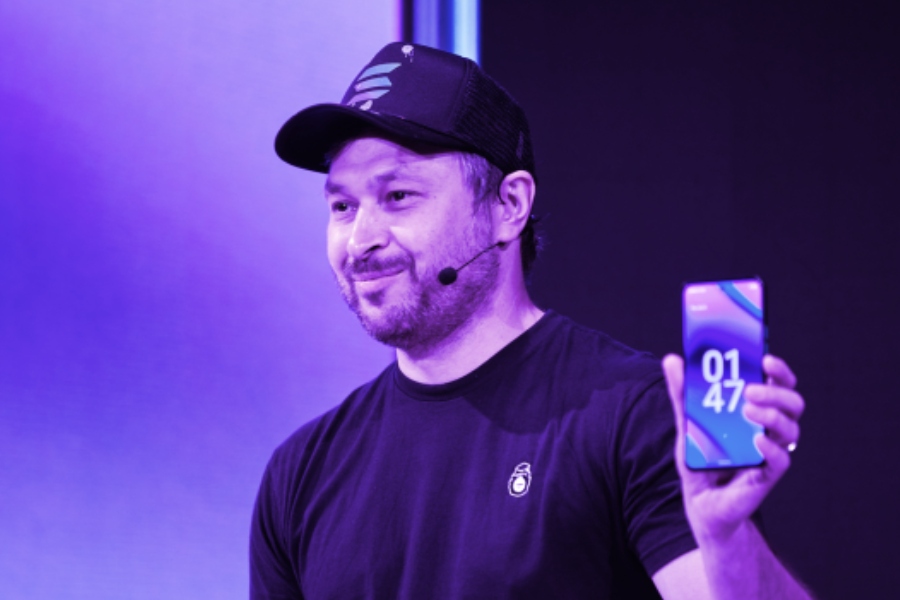Anatoly Yakovenko, the co-founder of Solana, stands out as a significant figure in the blockchain industry, having pioneered one of the fastest blockchain platforms in the world. His journey from Qualcomm engineer to blockchain innovator is a testament to his vision of a highly scalable and efficient digital future. This article explores Yakovenko’s contributions to blockchain technology and how his work with Solana is shaping the future of decentralized applications.
Background and Career Beginnings
Anatoly Yakovenko began his career as a software engineer at Qualcomm, where he worked on optimizing operating systems. His extensive experience with compression algorithms and distributed systems laid a solid foundation for his future endeavors in blockchain technology. Yakovenko’s deep technical background is crucial to understanding how he approaches blockchain innovation, prioritizing speed and efficiency without compromising security.
The Genesis of Solana
The idea for Solana originated from Yakovenko’s realization of the limitations in throughput and scalability faced by traditional blockchains like Bitcoin and Ethereum. Motivated by the desire to eliminate these bottlenecks, Yakovenko, along with Greg Fitzgerald and Stephen Akridge, started developing a new blockchain protocol that focuses on maximizing throughput and reducing latency.
Solana's Technological Innovations
Solana introduces several key innovations that distinguish it from other blockchain platforms:
- Proof of History (PoH): Developed by Yakovenko, PoH is a consensus algorithm that enhances the throughput of the blockchain by creating a historical record that proves that an event has occurred at a specific moment in time. This allows for greater scalability and faster processing times by reducing the need for validators to communicate to agree on the order of events.
- Turbocharged Throughput: Solana’s ability to process 65,000 transactions per second at peak and its sub-second block times are primarily due to its highly optimized software and unique consensus mechanisms. This makes it one of the fastest blockchains available, appealing to developers who need high-speed transactions.
- Low Transaction Costs: Solana offers significantly lower transaction fees compared to its competitors, which makes it an attractive platform for developing decentralized apps (dApps), especially those requiring high transaction volumes like decentralized exchanges, gaming, and social media applications.
Impact on the Crypto Ecosystem
Solana’s introduction into the blockchain ecosystem has been a game-changer, especially for developers looking to build scalable applications without the limitations of Ethereum’s higher gas fees and slower speeds. Its architecture supports a wide range of applications, including DeFi (decentralized finance), NFTs (non-fungible tokens), and Web3 projects, contributing significantly to the expansion and adoption of these technologies.
Challenges and Future Outlook
Despite its rapid rise, Solana has faced challenges, including several network outages that raised concerns about its stability and reliability. However, Yakovenko and his team have been transparent in addressing these issues, implementing improvements and upgrades to enhance the network’s resilience and efficiency.
Looking forward, Anatoly Yakovenko continues to push the boundaries of blockchain technology with ongoing enhancements to Solana. His vision for a decentralized, scalable, and efficient blockchain aligns with the broader goals of the crypto community to enable a more interoperable and accessible digital economy.
Conclusion
Anatoly Yakovenko’s work with Solana epitomizes innovation and forward-thinking in the blockchain space. As Solana continues to grow and evolve, its impact on the digital landscape appears increasingly significant, with Yakovenko at the helm steering the platform towards a future where blockchain technology is ubiquitous and seamlessly integrated into everyday applications. His contributions not only reflect his engineering expertise but also his commitment to creating a more connected and efficient world through blockchain technology.








